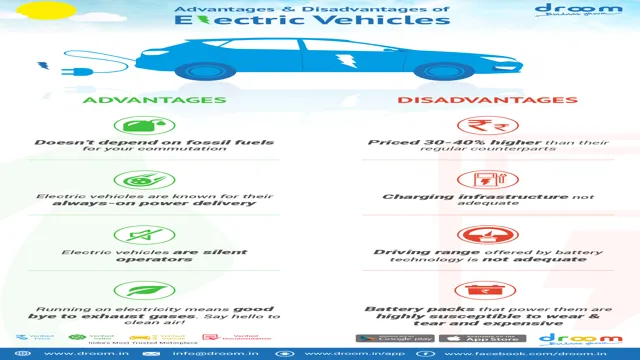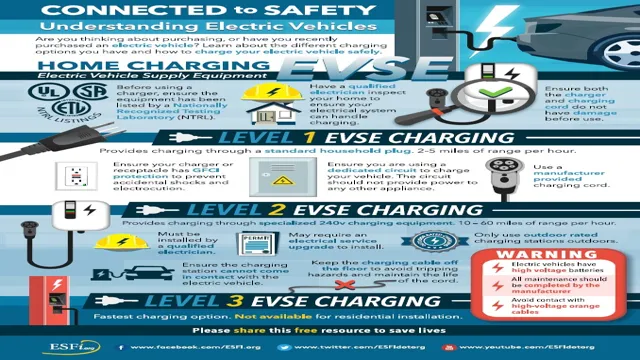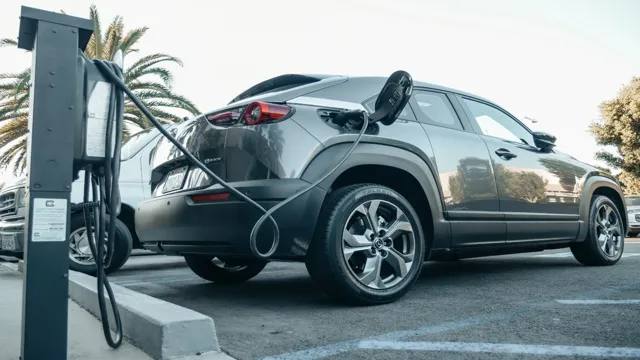Revving Up Your Knowledge: The Pros and Cons of Electric Cars
Electric cars have been at the forefront of discussions on sustainable transportation for quite some time now. This innovative technology promises to revolutionize the way we move and contribute to a greener future. However, as with any new technology, electric cars come with their unique benefits and disadvantages.
In this blog, we will delve into the advantages and drawbacks of electric vehicles and provide you with a comprehensive guide to help you make an informed decision on whether electric cars are suitable for you. So, fasten your seatbelts and let’s get started!
Benefits
Electric cars have several benefits over gasoline-powered vehicles. Firstly, they emit zero harmful pollutants, making them an environmentally friendly option. Secondly, they are much cheaper to operate and maintain since they do not require oil changes, spark plug replacements, or emissions checks, among other things.
This can lead to significant long-term savings for car owners. Electric cars are also quieter and provide a smoother driving experience due to their electric motors. However, there are also some disadvantages to consider.
For instance, electric cars require a charging network to operate, which can be limited in some areas. Additionally, they typically have a higher upfront cost compared to traditional vehicles. Despite these drawbacks, the benefits of electric cars make them a compelling option for those who value sustainability and savings in the long run.
Eco-Friendly and Sustainable
When it comes to being eco-friendly and sustainable, the benefits are numerous. First and foremost, eco-consciousness is vital for preserving our planet’s natural resources. By reducing our carbon footprint, we can significantly decrease our impact on the environment, ensuring a better future for generations to come.
Secondly, sustainable living can also have financial benefits. By cutting down on waste and utilizing renewable resources, we can save money on energy bills and reduce our overall expenses. Additionally, adopting eco-friendly practices can even lead to improved health and well-being.
For example, using organic and natural products can eliminate harmful chemicals from our homes, reducing the risk of exposure to toxins. Ultimately, living a greener lifestyle not only benefits the planet, but it also enhances our own lives and creates a better future for everyone.

Minimal Maintenance Costs
Minimal maintenance costs are a significant benefit of many products and services, particularly those focused on reducing expenses for customers. It’s much cheaper and more efficient to buy something that doesn’t need constant repair and maintenance than it is to invest in something that will frequently break down and need to be repaired or replaced. Products that embody the minimal maintenance cost benefit can save a lot of time and money for their users.
A simple example is a car with superior gas mileage that requires less maintenance, which can be less expensive to own over time than a similarly priced vehicle with poor fuel economy. Minimal maintenance costs are an attractive feature for buyers, and companies that can deliver it will have an upper hand in the market. If you’re wondering how to make a product or service unique and marketable, consider this key benefit and use it to differentiate your offerings from the competition.
Lower Cost of Fuel
Lower cost of fuel is one of the biggest benefits of using alternative energy sources. Traditional fossil fuels are becoming increasingly expensive due to their finite supply and environmental impact. Alternative energy technologies like solar, wind, and hydro power generate electricity without producing harmful greenhouse gases.
As a result, they have lower operating costs and are cheaper to use in the long run. This is particularly true for businesses that depend on large amounts of energy to run their operations. By investing in alternative energy sources, businesses can reduce their energy costs and increase profit margins.
Plus, they can reduce their carbon footprint and contribute towards a more sustainable future. So, when it comes to saving money and protecting the environment, alternative energy is a win-win solution.
Disadvantages
While electric cars have many benefits, it’s essential to consider the disadvantages they may bring as well. One major disadvantage is the initial cost of purchasing an electric car. Currently, electric cars tend to be more expensive than conventional gasoline-powered vehicles.
Additionally, charging electric cars can take longer than filling up a gas tank. While many drivers may be able to charge their vehicles overnight, long road trips can prove challenging due to the limited range of electric cars. Lastly, the production of electric car batteries requires the use of rare earth minerals and metals, which can be environmentally damaging to extract.
While electric cars are certainly a more sustainable form of transportation, it’s important to weigh the disadvantages before making the switch.
Higher Upfront Cost
One of the key disadvantages of investing in certain products or services is the higher upfront cost. While opting for high-quality or durable goods may seem like a wise choice in the long run, it can sometimes prove difficult to justify the expense upfront. For instance, premium appliances or eco-friendly technologies may require more money upfront but can eventually lead to cost-savings.
However, not everyone has the financial flexibility to pay for the higher cost upfront, which can be a deterrent. Moreover, determining the true value of the investment can be challenging, especially if the benefits are not immediate or visible. As such, it is important to weigh the pros and cons, and consider one’s financial situation before making such an investment.
In some cases, it may make sense to stick with more affordable options with lower upfront costs, especially if the benefits of the premium option are marginal or not required.
Limited Driving Range
When it comes to electric cars, one of the biggest disadvantages is their limited driving range. Unlike gasoline-powered vehicles that can go hundreds of miles on a single tank of gas, electric cars typically have a range of 100-300 miles on a single charge. While this may be sufficient for daily commutes and around-town driving, it can pose a challenge for longer trips or out-of-town travel.
However, it’s important to note that the driving range of electric cars is constantly improving, with some models now offering ranges over 400 miles. In addition, advancements in charging infrastructure and battery technology are making it easier and faster to charge electric cars on the go. While a limited driving range may be a temporary drawback to driving an electric car, the benefits of zero emissions, lower fuel costs, and reduced carbon footprint ultimately outweigh any inconveniences.
Longer Charging Time
One of the main drawbacks of using electric vehicles is the longer charging time that comes with it. Unlike traditional gasoline-powered vehicles, electric cars require a longer recharge time. Depending on the manufacturer, it can take anywhere from a few hours to several days to fully recharge the battery.
This can be problematic for drivers who have long commutes or plan on using their vehicle for extended periods, as it limits the amount of time they can use their car on a single charge. It also means having to plan out the charging process and potentially having to stop mid-journey to charge up. While advancements are being made in battery technology to reduce charging times, it is still a significant drawback for many EV owners.
Conclusion
In conclusion, electric cars are a shining example of how technology can be used to revolutionize the way we travel, while also benefiting the environment. However, as with any new technology, there are still some drawbacks, including limited range and longer charging times. But don’t be too quick to dismiss electric cars – after all, they offer a quiet, smooth ride and significantly lower emissions.
Plus, with the ongoing advances in battery technology and charging infrastructure, it won’t be long before these drawbacks become a thing of the past. So if you’re looking for a greener, more exciting way to get around, electric cars are definitely worth considering – just remember to keep your charging cable handy!”
Is an Electric Car Right for You?
One of the biggest disadvantages of owning an electric car is the limited driving range. Depending on the model, most electric cars can only go up to 100-300 miles on a single charge. For people who frequently take long road trips or have long daily commutes, this can be a major inconvenience.
Additionally, charging infrastructure is still developing, so finding a charging station may not always be easy. Another drawback is the initial cost of purchasing an electric car. While they may save you money on fuel in the long run, the upfront cost can be steep.
Finally, some people may be hesitant about switching to an electric car due to the unfamiliarity of owning one. This includes concerns about battery life, maintenance, and repair costs. Overall, while electric cars offer many benefits, they may not be the best choice for everyone.
It’s important to consider your driving needs, budget, and level of comfort with new technology before making the switch to an electric car.
FAQs
What are the benefits of electric cars?
Electric cars have zero emissions, cost less to operate, and require less maintenance than traditional cars.
How long does it take to charge an electric car?
Charging time varies depending on the car and the charger used, but typically it takes 4-8 hours to fully charge an electric car.
Are there any disadvantages to owning an electric car?
Yes, electric cars have limited range and require access to charging stations. Additionally, they can be more expensive to purchase upfront than traditional cars.
How much money can I save by driving an electric car?
Over time, electric cars can save you money on fuel costs and maintenance expenses. Depending on your driving habits and the cost of electricity in your area, you could save thousands of dollars over the lifetime of the car.
What is the lifespan of an electric car battery?
The lifespan of an electric car battery varies depending on the model and usage, but most manufacturers offer an 8-year or 100,000-mile warranty on their batteries. With proper maintenance, the battery should last even longer.



